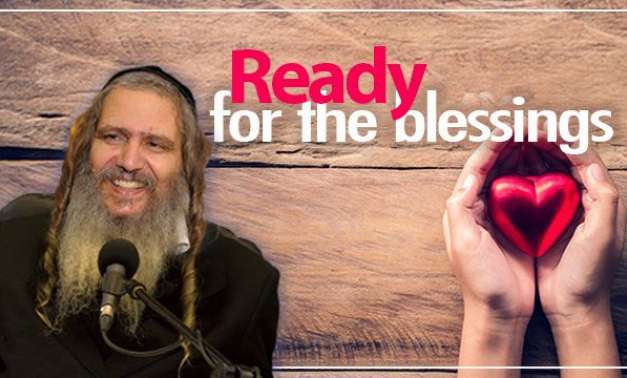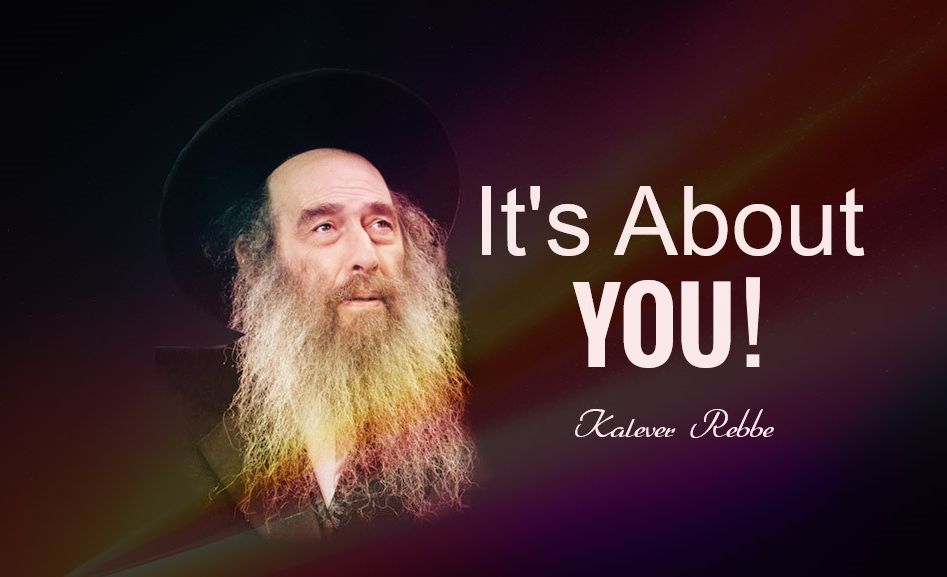
Ending Galut Yishmael
During these times, we must trust and rely only on Hashem to deliver true salvation. We cannot depend on our strength or might, nor can we depend on political alliances.

“And these are the generations of Yitzchak”… (Bereishit 25:19)
A Wildness
When R’ Shmaya Dichovsky, z”l, author of Neos Deshe, was traveling to Eretz Yisroel in 5693, he stopped in Radin to meet with the Chafetz Chaim.
During their conversation, R’ Shmaya asked the Chafetz Chaim’s opinion about the debate taking place in America regarding its future relations with the Arab community in Eretz Yisroel. On one hand, there was a palpable fear following the massacre in Chevron, where the Arabs brutally and savagely attacked a yeshiva. On the other hand, there was an optimistic hope that the nations of the world would be able to educate and guide the Arab community towards more civil society.
The Chafetz Chaim responded and said: “The Torah describes Yishmael as (Bereishit 16:12), “And he will be a wild donkey of a man“. Our Torah is eternal and everlasting. If the Torah describes this way the family of Yishmael, then they are forever considered a wild donkey of a man. Even if every nation in the world combined their efforts to educate and civilize them, they would not succeed. Even if one of them becomes learned and becomes a lawyer, for example. Then he will be a lawyer that is the wild donkey of a man. If he becomes a professor at a prestigious university, he will remain a professor that is a wild donkey of a man. There is wildness within them. And, you will never be able to remove it.”
Then, the Chafetz Chaim sighed and said: “Oy! Who knows what kind of savagery this animal will inflict upon the Jews in the final days before Mashiach arrives.”
These prophetic words of the Chafetz Chaim, which are unfolding before our eyes today, have their roots in ancient sources, specifically in the teachings of Chazal and the Pirkei D’Rebbe Eliezer. These sources describe that at end of the Galut (Exile) Edom, a new era of exile will begin called the Galut Yishmael.
A New Phase of Exile
In Daniel (Chapter 7), Daniel has a dream where he sees four animals. The Angel explained that these animals represent the four different kingdoms that would rule during each of the four exiles. The animal that represented the fourth exile, the Galut of Edom, was strange. It had 10 different horns on its head. And, then, a smaller horn started to emerge. The Malbim explains that that smaller horn represented the stage of Galut Yishmael, just before Mashiach would arrive.
This is a very difficult exile. The Zohar teaches that this time of Galut Yishmael is more challenging than any other galut that occurred throughout history (Volume II, 17a).
Rabbeinu B’Chai (Devarim 30:7) notes that the word אויבך (your enemy) is used to describe Yishmael, and Eisav is described as שונאיך (your despised). An “enemy” is far worse than someone that you “despise” because, unlike someone who is despised, an enemy will never show you mercy.
R’ Yehoshua Leib Diskin, zt”l, the Rav of Jerusalem, comments on this pasuk that says והוא יהיה פרא אדם (“And he will be a wild donkey of a man”). In Hebrew, we mention the essence of something before the adjective that describes it. Therefore, a good person in Hebrew is called a אדם טוב and not a טוב אדם. Here, it says פרא אדם because the animal within Yishmael is his essence. They are only described as a man.
Prayer is Our Weapon
When suffering from such people, you cannot believe that you can be saved from their savagery through natural means. Therefore, we need to rely on what Chazal taught at the end of Sotah where they are discussing the last days before Mashiach’s arrival. They repeatedly said, “Who can save us except for our Father in Heaven?!” During this era, we need to remember that we must trust and rely only on Hashem to redeem us and to deliver the true salvation. We cannot depend on our strength or might.
Therefore, during the Galut of Yishmael, it is critical to daven and lean on the power of tefilla (prayer). In chapter 24 of Eitz HaDaas Tov, R’ Chaim Vital, zt”l, writes about this at length. He describes that the last days of the galut are going to be extremely challenging as we suffer from Arabs’ savagery. All we can do, R’ Chaim explains, is daven and scream out to Hashem to save us from them.
The Klauzenberger Rebbe, zt”l, would say in the name of the Belzer Rebbe, zt”l, that generally the murderous Arabs are worse and crueler than the Germans, and therefore, in our times, we need to daven for all Jews around the world to be saved and protected from them.

The Fall of the Arabs and the Rise of Mashiach
The Baal HaTurim (Bereishit 25:18) taught that this explains the proximity of the pasuk at the end of Chayei Sarah to the beginning of this parsha. The pasuk discusses Yishmael and says על פני כל אחיו נפל (before all his brothers he dwelt/fell). The first pasuk in our Parsha says, וְאֵ֛לֶּה תּֽוֹלְדֹ֥ת יִצְחָ֖ק (And these are the generations of Yitzchak). Meaning, when the Arabs fall at the end of the galut, the redemption will begin and we will see the arrival of Mashiach who is a descendant of Yitzchak.
Perhaps we can explain that Mashiach is alluded to in the “generations of Yitzchak” because he had a unique approach to davening (prayer): he would pour his heart out. As Chazal taught in Brachot (26b) that Yitzchak established the Mincha prayer as it says (Bereishit 24:63) ויצא יצחק לשוח בשדה לפנות ערב‘ (And Yitzchak went forth to speak in the field towards evening). The word “speak” means prayer as it says (Tehillim 102:1), תפלה לעני כי יעטוף ולפני ה’ ישפוך שיחו (A prayer for a poor man when he envelops himself and pours out his speech before the Lord).
It is also taught in Shabbos (89b) that during the birth pangs of Mashiach, Hashem will go to each of the Avot (Fathers) and say, “Your children have sinned.” And only Yitzchak will pour out his pleas through tefilla and daven for the final redemption on behalf of the Jewish people.
Therefore, Mashiach is alluded to when discussing the offspring of Yitzchak. He uniquely davened (prayed) by pouring every ounce of his heart into the tefilla. Yitzchak had a passion and intensity about his prayers. And, it is through that dedication to tefillah that will bring an end to the Galut Yishmael and usher in Mashiach and the final redemption.
***
The Kalever Rebbe is the seventh Rebbe of the Kaalov Chasidic dynasty, begun by his ancestor who was born to his previously childless parents after receiving a blessing from the Baal Shem Tov zy”a, and later learned under the Maggid of Mezeritch zt”l. The Rebbe has been involved in outreach for more than 30 years, and writes weekly emails on understanding current issues through the Torah. You can sign up at www.kaalov.org.











Tell us what you think!
Thank you for your comment!
It will be published after approval by the Editor.